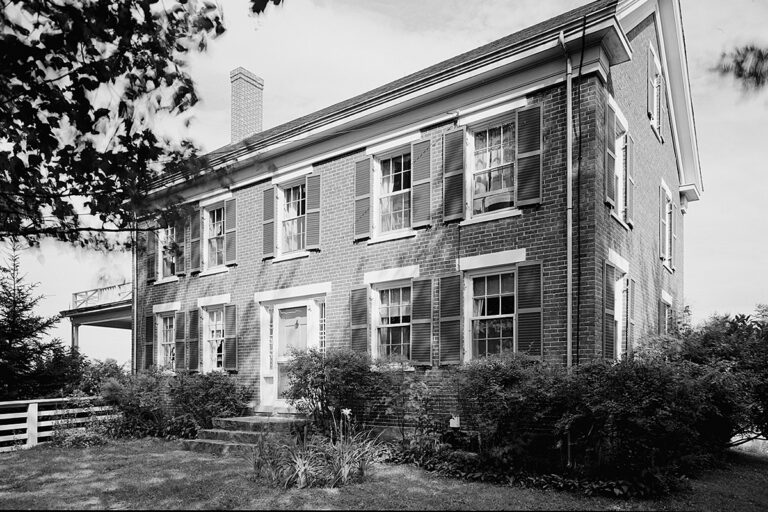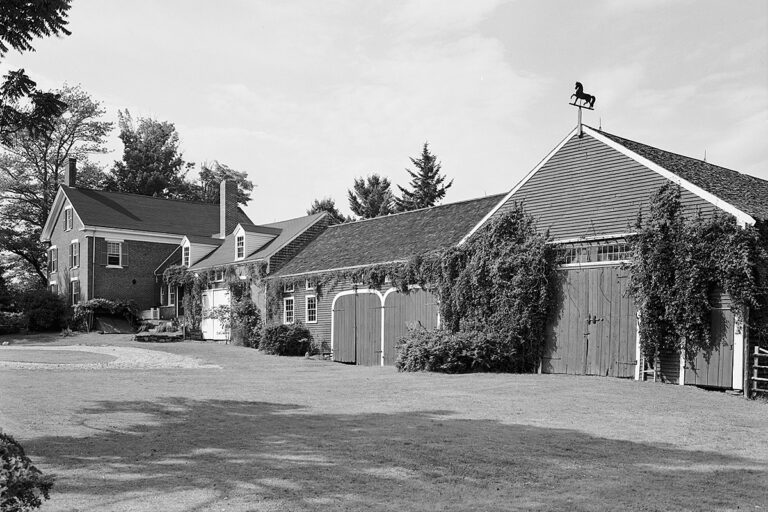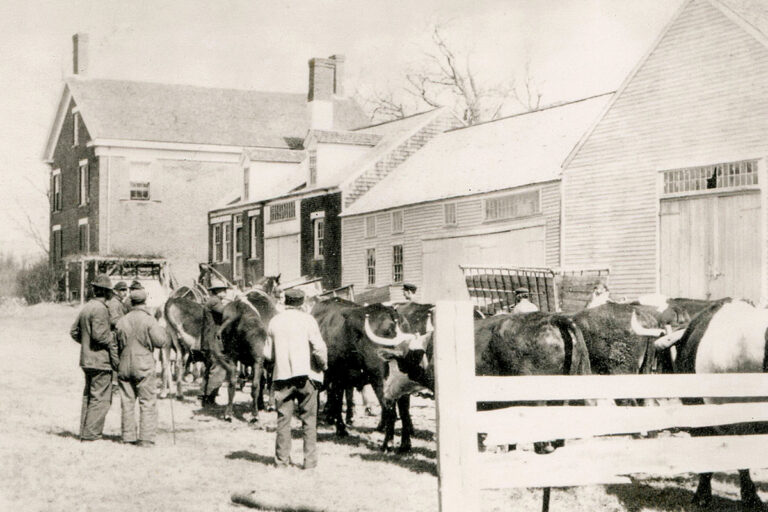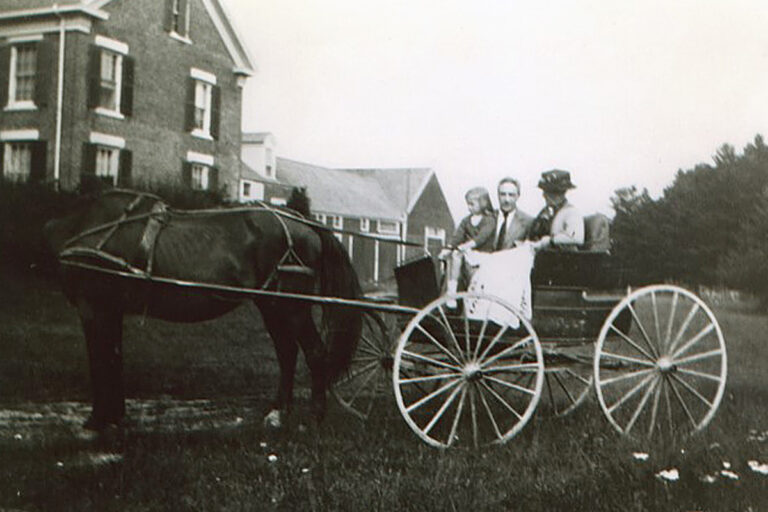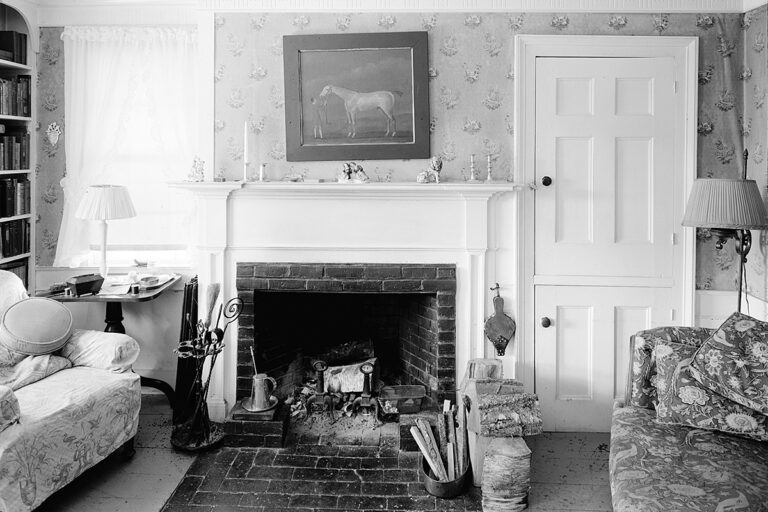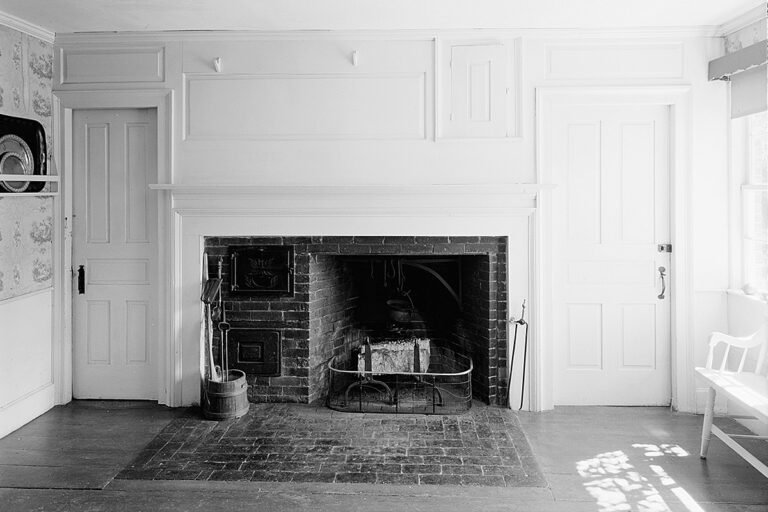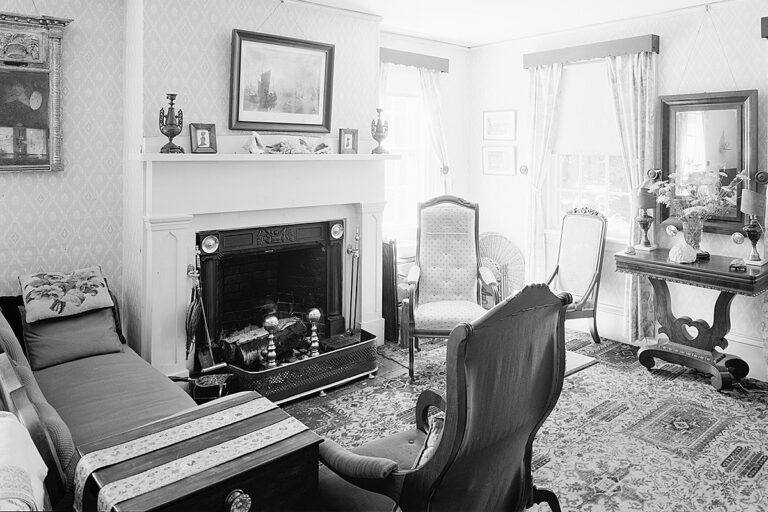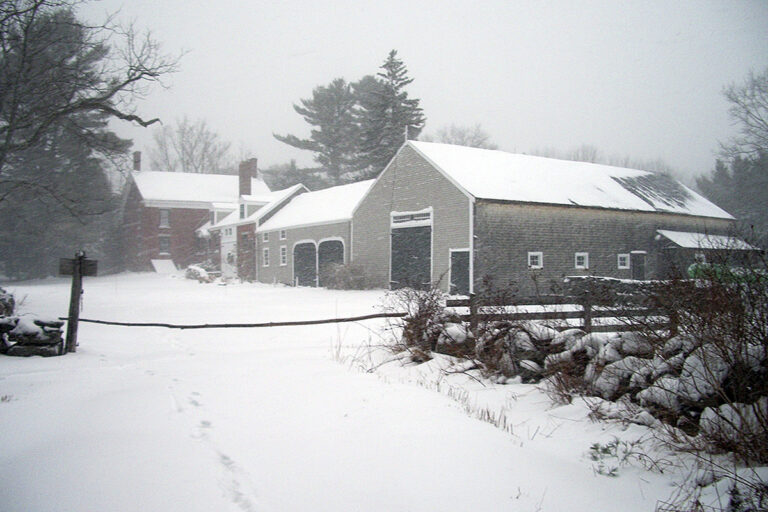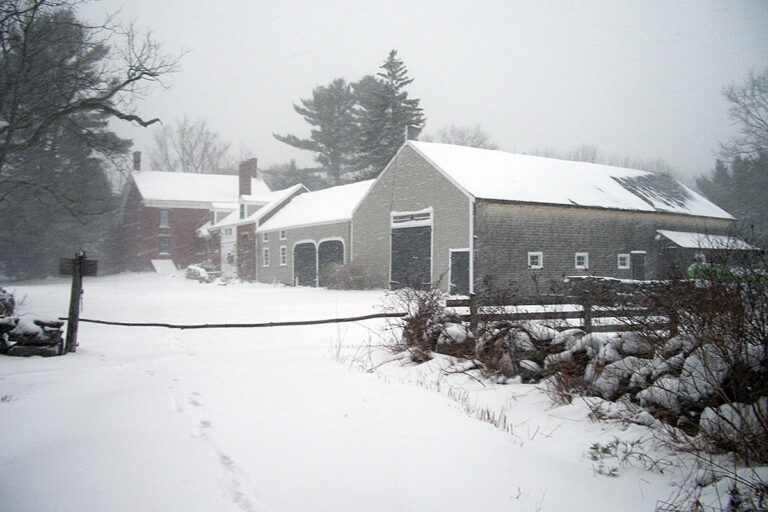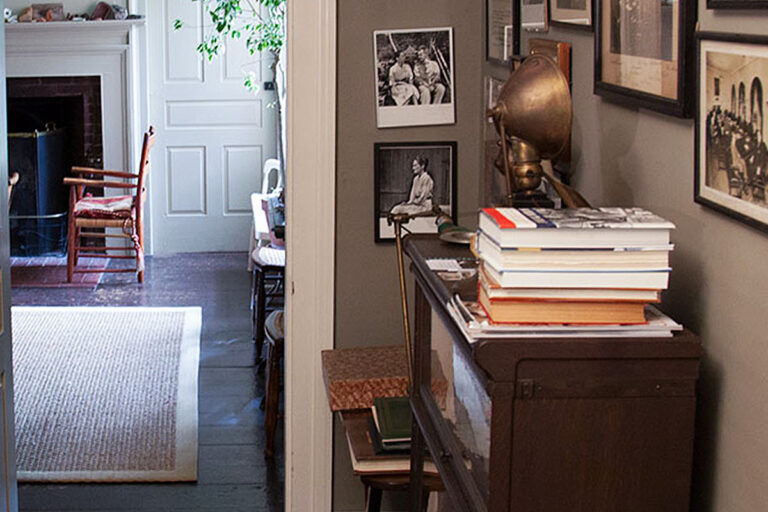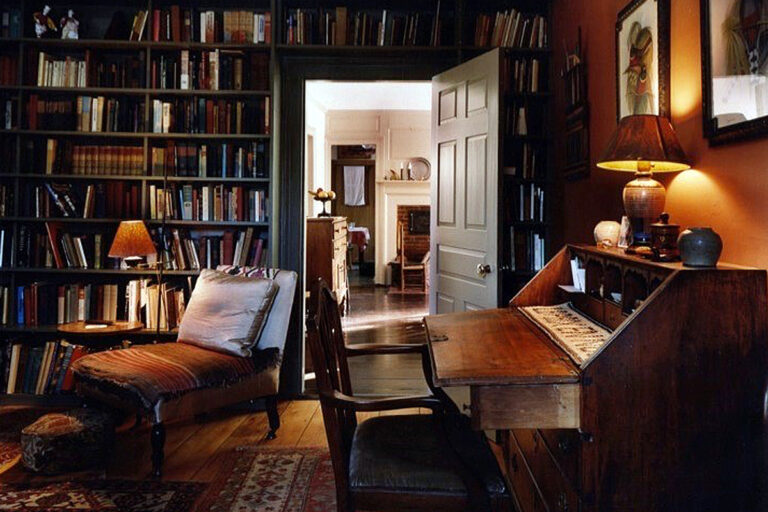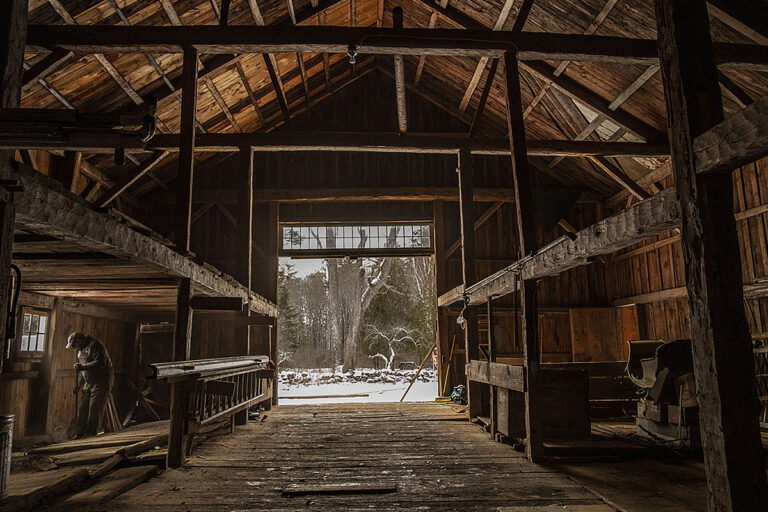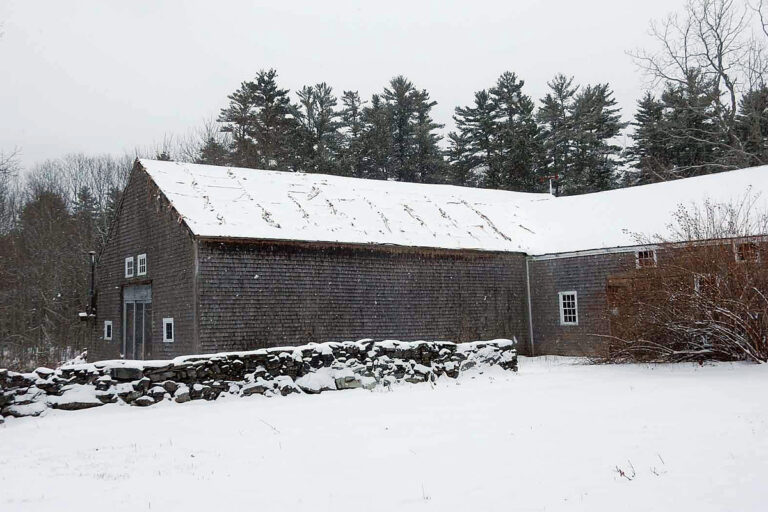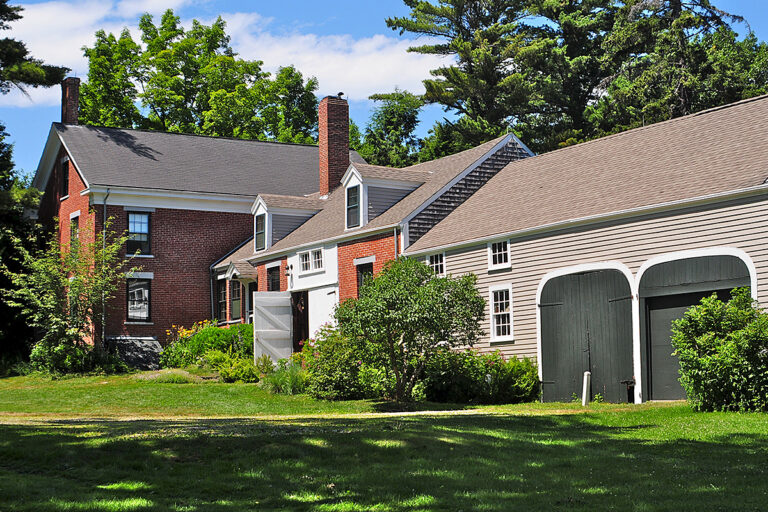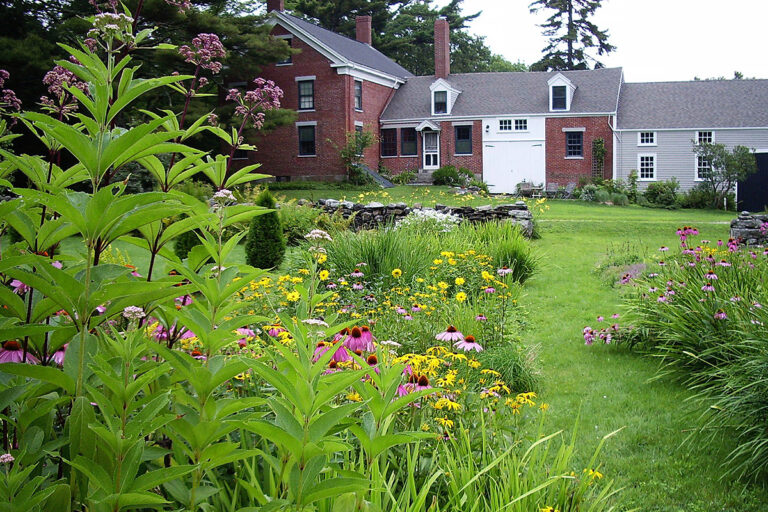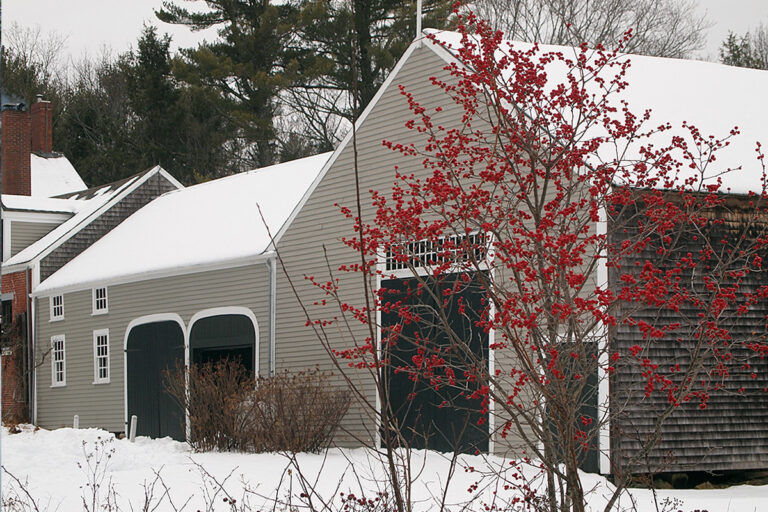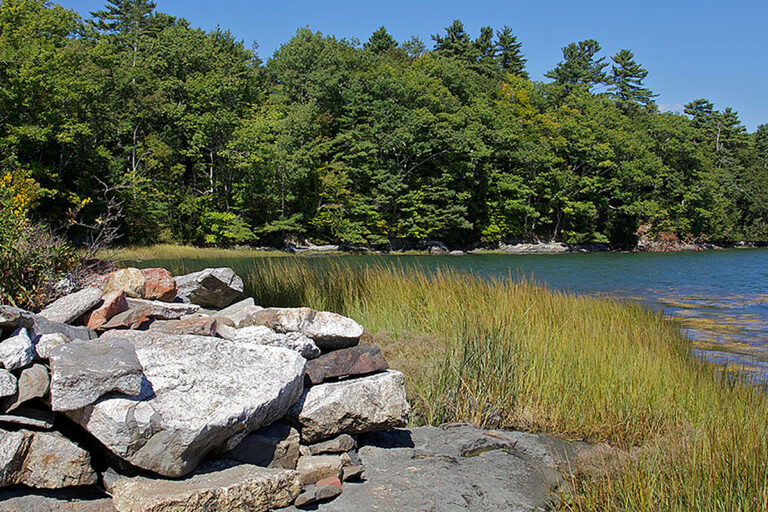National Historic Landmark
American Icon
Throughout her lifetime, Frances Perkins often lived at and found respite at her family’s homestead, a saltwater farm located on the banks of the Damariscotta River in Newcastle, Maine. Settled by the Perkins family in the mid-18th century, the Homestead consists of a well-preserved 1837 Brick House and connected barns on 57 acres within a protected landscape of fields and forest. The land features 2.8 miles of picturesque stone walls defining pastures and woodland, and remains of 18th and 19th century home sites, and remnants of wharves, clay pits and kilns connected with the family’s 19th century brick-making business. The house and barns contain artifacts used by generations of the Perkins family and include photographs, documents, furniture, tools, and equipment. Homestead tours, offered since 2010, bring the stories of Frances Perkins to life as they highlight her modest but comfortable home — the place that shaped her character to improving the lives of all Americans.
In 2014, the Center achieved designation of the Frances Perkins Homestead as a National Historic Landmark (NHL) by the United States Secretary of the Interior. This distinction ranks the Frances Perkins Homestead among our nation’s most significant places. It is one of less than 8% of the 93,000 National Register of Historic Places sites across the country that represent the stories of women and Americans of color.
In January 2020, with help from hundreds of donors, the Frances Perkins Center purchased the Frances Perkins Homestead National Historic Landmark. Grants from the State of Maine and the National Park Service Save America’s Treasures program are helping us to preserve its landscape and historic structures to open the Homestead for public access in 2023. We continue to need your special Homestead Campaign gift to help us transform this national treasure into a center for learning and discourse dedicated to Frances Perkins’ stated belief that government should provide for all of its people the best possible life. To learn more about how you can help, visit Homestead Campaign.
